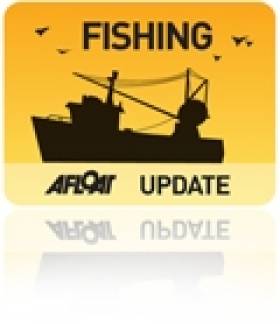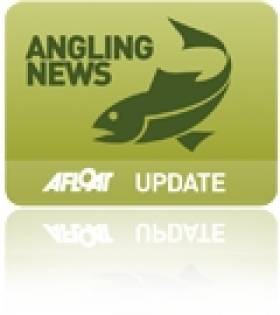Displaying items by tag: Draft Nets
#Fishing - Inland Fisheries Ireland (IFI) is inviting applications for Commercial Salmon Fishing (Draft Net & Snap Net) Licences for 2013.
The new licences are in accordance with the Control of Fishing for Salmon Order 2013, and come in the wake of the new Draft Nets and Snap Nets Bye-Law which sets out the relevant details for the current commercial fishing season.
An application form can be found within the downloadable PDF of said order, or may be obtained from your local IFI office. The closing date for receipt of completed applications is 29 March 2013. Late submissions cannot be accepted.
New Bylaws for Salmon and Trout Angling
#Angling - Six new bylaws of relevance to the angling community and the commercial fishing industry have been signed into law this week by Minister of State Fergus O'Dowd.
The Conservation of Sea Trout Bye-Law provides for a daily bag limit of three sea trout (less than 40cm in length and provides for the use of single barbless hooks and prohibits the use of worms as bait once the specified number of sea trout has been caught.
The Prohibition of Angling Methods Bye-Law prohibits the use of any fish hooks, other than single barbless hooks, and also prohibits the use of worms as bait in angling for all species of fish in the waterways specified.
The Conservation of Salmon and Sea Trout (Newport River) Bye-Law provides for catch and release in respect of Salmon and Sea Trout (over 40 cm) in the Newport River including the waters of Lough Beltra and the Crumpaun River, Co Mayo during the period 20 March to 11 May 2013.
The Conservation of Salmon and Sea Trout (River Nore) Bye-Law provides for catch and release in respect of Salmon and Sea Trout (over 40 cm) in the River Nore during the period 17 March to 11 May 2013.
The Conservation of Salmon and Sea Trout (River Slaney) Bye-Law extends the annual close season in angling for salmon, sea trout and brown trout in the River Slaney and its tributaries in the year 2013 from 26 February to 16 March and from 17 September to 30 September. The bylaw provides for catch and release during the period 17 March to 16 September in angling for salmon and sea trout. It also provides for the use of artificial fly only with single barbless hook upstream of the Old Bridge in Enniscorthy, and provides for single barbless hook and a ban on worms as bait downstream of the bridge when angling for salmon or sea trout.
Finally, the Draft Nets and Snap Nets Bye-Law sets out the opening and closing dates (and hours) for the draft net and snap net salmon and sea trout (salmon includes sea trout as defined in the Inland Fisheries Act 2010) commercial fishing season 2013 and prohibits draft net and snap net fishing for (salmon and sea trout) in all fishery districts except those mentioned in the schedule. It also prohibits the use of monofilament material in draft nets, with the exception of Cork Harbour and Castlemaine Harbour where monofilament material in draft nets is permitted.

























































